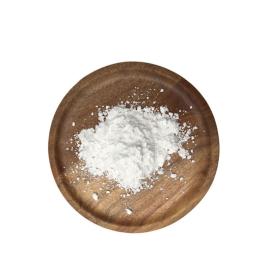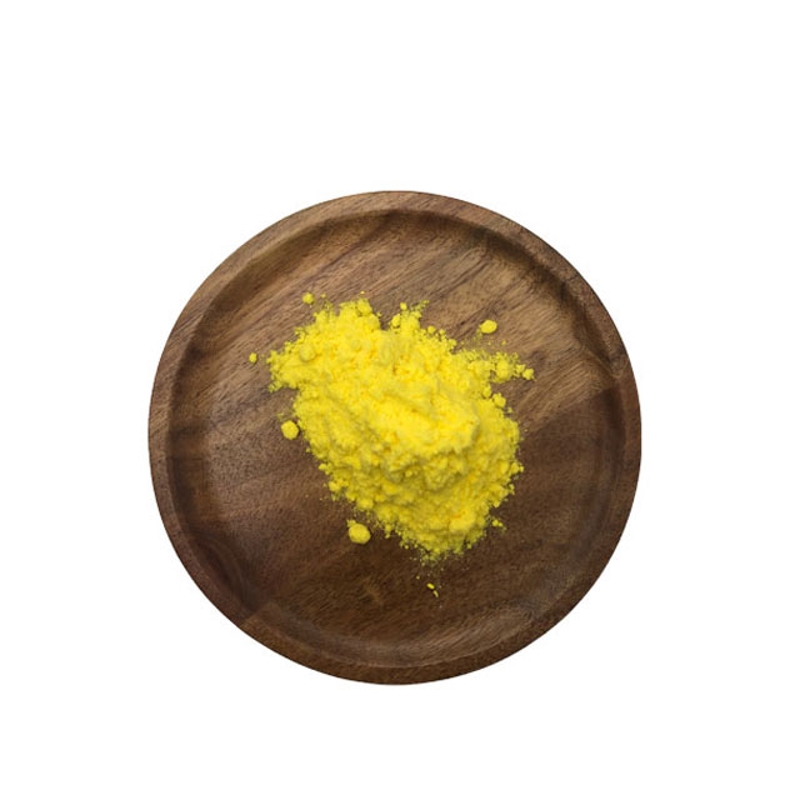-
Categories
-
Pharmaceutical Intermediates
-
Active Pharmaceutical Ingredients
-
Food Additives
- Industrial Coatings
- Agrochemicals
- Dyes and Pigments
- Surfactant
- Flavors and Fragrances
- Chemical Reagents
- Catalyst and Auxiliary
- Natural Products
- Inorganic Chemistry
-
Organic Chemistry
-
Biochemical Engineering
- Analytical Chemistry
- Cosmetic Ingredient
-
Pharmaceutical Intermediates
Promotion
ECHEMI Mall
Wholesale
Weekly Price
Exhibition
News
-
Trade Service
The top three new cancer cases in China in 2020 are: lung cancer (820,000), colorectal cancer (560,000), and gastric cancer (480,000)
.
Colonoscopy is the gold standard for screening and diagnosis of malignant tumors in the lower gastrointestinal tract.
Have you had colonoscopy? Do you know how to take intestinal preparation medicine? Do you know what to pay attention to before colonoscopy? Do you know what to pay attention to after colonoscopy? Next, let's "stretch posture" together
.
What is colonoscopy?
What is colonoscopy?Colonoscopy, also called total colonoscopy, enters from the anus (see clearly, not the nasal cavity) to observe the rectum, sigmoid colon, descending colon, transverse colon, ascending colon, ileocecal area and part of the ileum.
Biopsy and treatment can be taken at the same time
.
Under what circumstances need colonoscopy?
Under what circumstances need colonoscopy?1.
High-risk populations over 45 years old without any symptoms of digestive tract discomfort, colon polyps, and family history of tumors need to be checked
.
2.
Discomfort symptoms in the lower abdomen, such as abdominal distension, abdominal pain, constipation, diarrhea, etc.
, lasting for a long time, and the symptomatic treatment is not improved after taking medicine in a short period of time; when the stool is bleeding, or blood clots and blood streaks, the anus such as hemorrhoids cannot be used by the anorectal doctor.
When the disease is used to explain the bleeding; when the tar-like black stool is not found in the upper gastrointestinal disease by gastroscopy, it needs to be checked
.
3.
If there are recent tumor alarm symptoms such as unexplained fatigue, fatigue, pale complexion, weight loss, cervical lymphadenopathy, decreased hemoglobin, positive stool occult blood test and other tumor alarm symptoms and no lesions are found by gastroscopy, it needs to be checked
.
4.
Physical examination finds that blood tumor indicators such as CEA are elevated, CT or B-ultrasound finds thickening of the intestinal wall, unexplained liver space, abdominal lymph node enlargement and ascites; X-ray barium enema can not determine the pathology or symptoms and barium If the result of the enema test does not match, an examination is required
.
5.
Those who have found colon polyps, mucosal lesions and tumors need endoscopic treatment; those who have undergone colon polypectomy, ulcerative colitis treatment, colon tumor resection, etc.
need regular follow-up
.
Who should not do colonoscopy?
Who should not do colonoscopy?1.
People with severe purulent inflammation of the anus and rectum, such as perianal abscess, or painful lesions such as anal fissure
.
Because the examination in this case may lead to the spread of infection and cause pain that the patient cannot tolerate;
2.
Various acute enteritis, severe ischemic diseases and radiation colitis, such as active bacillary dysentery, acute ulcerative colitis, especially fulminant
.
Because in the case of intestinal inflammation, edema, and congestion, the intestinal wall tissue is thin and compliance is reduced, and intestinal perforation is prone to occur;
3.
During pregnancy, women should strictly grasp the indications and proceed cautiously.
In general, women should not be checked during menstruation to avoid ascending infections;
4.
In the case of peritonitis, intestinal perforation, etc.
, it should not be checked to avoid aggravating the condition;
5.
Extensive adhesions in the abdominal cavity and intestinal stenosis caused by various reasons make it difficult to enter the endoscope.
Do not continue to check forcibly to avoid tearing of the adhesions, mesangium or intestinal wall;
6.
Patients who are extremely weak, elderly, and have a history of severe cardiovascular and cerebrovascular diseases, who cannot tolerate the examination, must be cautious;
7.
Children and psychiatric patients should not undergo examinations.
If it is absolutely necessary, consider carrying out examinations under anesthesia
.
Is colonoscopy "painful"?
Is colonoscopy "painful"?The anatomical characteristics of the colon can cause some patients to feel discomfort when turning the colonoscope:
1) The colorectal is long and curved.
Patients who have had abdominal surgery, gynecological surgery, ileocecal tumors, and intestinal adhesions may feel swelling and pain when entering the colonoscopy, especially when passing the colorectal curve.
You will feel mild discomfort or drag
.
On the contrary, people with relatively thick, short, and fat intestines have fewer sharp bends and it is relatively easy to enter the mirror
2) The gastrointestinal tract is one of the emotional organs.
People who are nervous and sensitive to pain may experience various discomforts in the gastrointestinal tract
.
The patient needs to relax and breathe deeply .
What do I need to prepare before colonoscopy?
What do I need to prepare before colonoscopy?Colonoscopy is an appointment system, and you need to make an appointment at the Digestive Endoscopy Center in advance
.
The staff informs the matters needing attention and related knowledge in detail:
01
01Improve related inspections
Improve related inspectionsPainless colonoscopy uses intravenous anesthesia, which requires perfect electrocardiogram examination and infectious disease screening to assess the risk of anesthesia
.
For the treatment of intestinal polyps, it is necessary to improve the blood routine, blood coagulation function and other related examinations
02
02Bowel preparation
Bowel preparationTake a low-fiber semi-liquid diet one day before the test, such as white porridge, soy products, noodles, rice noodles, etc.
, not eat celery, leeks, glutinous rice, fungus, seaweed, kelp, sesame, dragon fruit, kiwi fruit, etc.
Digested food
.
You can drink slag-free beverages, such as sugar water, salt water, functional drinks, etc.
The specific operation process of bowel preparation is: dissolve a box of polyethylene glycol electrolyte powder (1 packet each of A, B, and C) in 1000ml of cold boiled water at 20 o'clock in the evening, stir evenly, and complete the oral administration within 1 hour.
Drink 2 boxes of polyethylene glycol at 5 o'clock in the morning and dissolve it in 2000ml of cold boiled water.
Drink it within 2 hours, and stop drinking water after 7 o'clock.
The process should not be too rapid or too fast to avoid vomiting
.
During the medication, you need to walk back and forth to speed up intestinal peristalsis, avoid lying in bed, playing with mobile phones, or sitting watching TV, until the colorless or light yellow transparent watery stool is discharged
If you experience severe nausea, vomiting, abdominal pain and other adverse reactions during bowel preparation, you should stop taking the medicine immediately and inform your doctor
.
After 1 hour of taking the medicine, the intestinal movement speeds up, and you may feel abdominal distension.
If you have severe abdominal distension or discomfort, you can slow down or stop taking the medicine.
After the symptoms are eliminated, continue until the watery stool is discharged
.
03
03Medication management
Medication managementOn the day of the examination for hypertensive patients, take a small amount of water and take antihypertensive drugs to ensure normal blood pressure before undergoing colonoscopy
.
Diabetes patients should suspend the use of hypoglycemic drugs or insulin on the day of the examination.
It is recommended to take laxatives in the hospital.
If symptoms of cold sweat, chest tightness, dizziness and other hypoglycemia occur, blood glucose monitoring should be improved in time and treated symptomatically
.
People who have a history of using antiplatelet drugs such as aspirin and clopidogrel should be treated with colonoscopy at least 7 days after the drug has been discontinued.
If necessary, they can apply to the Department of Cardiology for assistance in guiding medication
.
What should I pay attention to after colonoscopy?
What should I pay attention to after colonoscopy?On the day after colonoscopy, it is normal to have mild abdominal pain and bloating.
It is related to the operation of injecting air during the examination.
The doctor will apply bloating stickers to promote the discharge of intestinal gas and relieve the symptoms of bloating according to the specific situation
.
Generally 1 hour later, you can eat easily digestible foods, such as porridge, noodles, porridge, etc.
; if there is an intestinal biopsy and other operations, you will be notified in time for special treatment
.
If a polyp is found under colonoscopy, the doctor may remove the polyp during the examination
.
If the polyp is large, or other suspicious lesions such as tumors are found, the doctor will do a biopsy, take some or all of the lesion tissue and send it for testing.
The pathology department will issue an examination report in about 3-5 working days to tell us what the lesion is.
Benign or malignant, cancer or precancerous lesions
.
Doctor reminded
Doctor remindedIntestinal cancer, as a kind of "slow action" and the most preventable malignant tumor, mostly develops from intestinal polyps, and it is necessary to "stop damage" in time at the stage of intestinal polyps
.
Timely colonoscopy is a "worthy" physical examination item for people over 40 years old and people with a family history of intestinal diseases
.
As colonoscopy technology becomes more mature, I believe that hospitals can provide patients with a more comfortable experience
.







